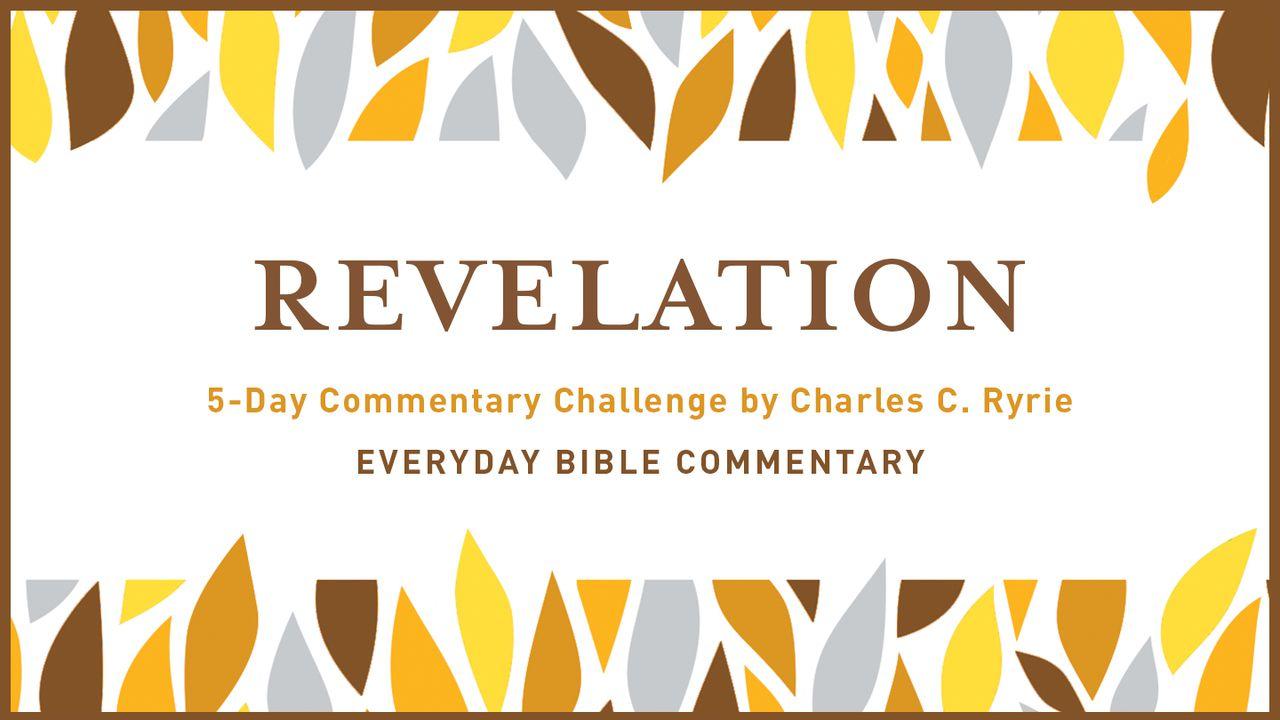5-Day Commentary Challenge - Revelation 2-3 Sample

The Letter to Thyatira, 2:18–29
Destination, 2:18
Thyatira, about thirty-five miles southeast of Pergamum, was noted for its numerous trade guilds and for its wool and dyeing industry. It was the home of Lydia, who traded in cloth that was dyed purple (Acts 16:14). The name means “unweary sacrifice,” and if these churches picture eras of church history, Thyatira— both because of its name and the activity of Jezebel—depicts the Middle Ages and the ascendancy of the Roman Catholic Church.
The Lord, 2:18
The Lord represents Himself to the church as the divine one (“Son of God”) who is the executor of searching judgment (“eyes like a flame of fire”), trampling His enemies under His feet (v. 27).
Commendation, 2:19
The church is commended for increasing in good works.
Condemnation, 2:20–23
The church is rebuked for permitting the false teaching of a prophetess who openly advocated apostasy. Her actual name may or may not have been Jezebel, but she was a true Jezebel in her actions (1 Kings 19; 2 Kings 9). She promoted immorality and idolatry (v. 20) in a doctrinal context that is described as the “deep things of Satan”—his attempt to make wrong seem right (v. 24). Because she had not repented in spite of the patience of God, He promised to judge her by allowing her a complete abandonment to her way of life (v. 22), trouble for her followers (“her children,” v. 23), and eventual death, all of which was calculated to wake up the church (v. 23).
Exhortation, 2:24–25
The exhortation to those who had not trafficked with Jezebel was “no other burden” than that they should themselves keep from immorality and idolatry. The phrase is an echo of Acts 15:28–29.
Promise, 2:26–28
The faithful are promised association with Christ in His millennial reign (vv. 26–27; cf. Ps. 2:9) and “the morning star” (v. 28). This is a reference to Christ Himself (cf. 22:16) and/or to the immortal life we receive from Him.
The Letter to Sardis, 3:1–6
Destination, 3:1
Sardis, about thirty miles south of Thyatira, was the capital of Lydia. The city was thought to be impregnable, but Cyrus, king of the Medo-Persians, captured it by following a secret path up the cliff. The word “Sardis” is probably from a Hebrew word meaning “rest” or “remnant.” The city was a trading center for wool and dyeing and was characterized by a loose, luxurious lifestyle. The church was at peace—the peace of the dead! This church may represent the Reformation period in church history. The Lord appears as the One who is full of wisdom (“seven Spirits”) and who is in complete control of the leadership of the churches (“seven stars,” cf. 1:20).
Commendation, 3:4
The relatively few faithful saints are commended, though the church in general was dead.
Condemnation, 3:1–2
The church is first condemned for its lifeless profession (v. 1). The One who knows all things discerned the true condition of the church as being dead, though outwardly it seemed alive. Second, the church is condemned for its incomplete works (v. 2).
Exhortation, 3:3
Like the church at Ephesus, this one is exhorted to remember what they had received and heard in the first days of their Christian experience (cf. Heb. 10:32; Gal. 5:7). The people are also exhorted to watch for the Lord’s coming and to be prepared (1 Thess. 5:6–8).
Promise, 3:5–6
To the true believing remnant in the church is promised white raiment, a sign of purity (cf. 19:8, 14). The grace of the Lord is displayed in the statement of verse 4 that these few are worthy to walk with the Lord in purity. The certainty of the promise is assured because these will not (emphatic double negative) be blotted out of the Book of Life (cf. 20:12). This statement does not threaten the possible loss of one’s salvation but rather promises assurance that no believer will ever lose it. Also, these faithful ones will be acknowledged publicly before the Father and His angels.
Scripture
About this Plan

This reading plan is from the Everyday Bible Commentary on Revelation 2-3 and will help you develop a deeper understanding of Jesus' letters to the churches. It is for anyone who has a desire to increase their understanding of Scripture and strengthen their relationship with God.
More
We would like to thank Moody Publishers for providing this plan. For more information, please visit: https://www.moodypublishers.com/books/bible-study-and-reference/revelation--everymans-bible-commentary/
Related Plans

Overcoming Fear: A 5-Day Journey to Freedom, Faith, and the Father’s Embrace

Be Still and Know

Lessons From Some Hidden Heroes in the Bible

Made for This

And His Name Shall Be Called

A People After God

Christmas in Psalm 16: Fullness of Joy

7 Habits of a Mature Disciple

Impulses for the Way: 30 Days on the Camino De Santiago
